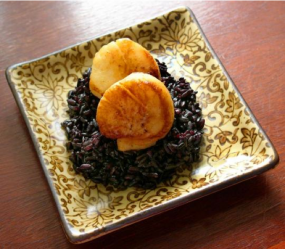- Fitness (19)
- News & Reviews (25)
- Nutrition (20)
- Science (10)
- Supplements (6)
- Technologies (8)
- The Arts (9)
Walk — To Remember!
February 7th, 2011
From The New York Times: In healthy adults, the hippocampus — a part of the brain important to the formation of memories — begins to atrophy around 55 or 60. Now psychologists are suggesting that the hippocampus can be modestly expanded, and memory improved, by nothing more than regular walking.
Researchers randomly assigned 120 healthy but sedentary men and women (average age mid-60s) to one of two exercise groups. One group walked around a track three times a week, building up to 40 minutes at a stretch; the other did a variety of less aerobic exercises, including yoga and resistance training with bands.
After a year, brain scans showed that among the walkers, the hippocampus had increased in volume by about 2 percent on average; in the others, it had declined by about 1.4 percent. Since such a decline is normal in older adults, a 2 percent increase is fairly significant.
The researchers were delighted to learn that the hippocampus might expand with exercise. And not that much exercise. People don’t even have to join a gym. They just need shoes.
Filed under Fitness | Comments Off on Walk — To Remember!Your Brain on Blueberries
January 16th, 2011
 From Scientific American: Chemical compounds common to berries, tofu, tea and other foods can shore up memory and boost brainpower.
From Scientific American: Chemical compounds common to berries, tofu, tea and other foods can shore up memory and boost brainpower.
What is blue, sweet and juicy and may help ward off those nagging memory lapses? If you guessed blueberries, you would be right… they may protect our brain.
Emerging research suggests that compounds in blueberries known as flavonoids may improve memory, learning and general cognitive function, including reasoning skills, decision making, verbal comprehension and numerical ability. In addition, studies comparing dietary habits with cognitive function in adults hint that consuming flavonoids may help slow the decline in mental facility that is often seen with aging and might even provide protection against disorders such as Alzheimer’s and Parkinson’s.
To date, scientists have identified more than 6,000 flavonoid-containing foods. They are widely distributed in fruits and vegetables, cereal grains, cocoa, soy foods, tea and wine.
How much do we need? A Cincinnati study found a 30% improvement in a group of adults older than 75 with mild memory loss who drank two cups of blueberry juice a day (the equivalent of five cups of blueberries). One study in England asked peope to add flavonoid containing foods to their meals: either soy products, supplements (Gingko biloba or pine bark extract) or a cocoa-containing beverage. Flavonoid consumption improved cognition and fine motor skills. Amounts needed to produce the improvements? One and a half cups of tofu or two cups of soy milk, 120 mg. of gingko, 150 mg. of pine bark extract, or 172 mg of cocoa flavonoids (the equivalent of 10.5 ounces of dark chocolate).
But wait–these studies give single-source quantities! If you have flavonoids from a variety of sources you’ll need moderate amounts of each one. The bottom line: eat your fruits and vegetables!
Article (behind a paywall)
Filed under News & Reviews, Nutrition | Comments Off on Your Brain on BlueberriesEmperor’s Black Rice
August 27th, 2010
 By Carina Storrs (Health.com): According to ancient Chinese legend, black rice was so rare, tasty, and nutritious that only the emperors were allowed to eat it.
By Carina Storrs (Health.com): According to ancient Chinese legend, black rice was so rare, tasty, and nutritious that only the emperors were allowed to eat it.
Although black rice is still relatively rare, researchers are trying to bring its distinctive flavor and mix of antioxidants to the masses—or at least to a grocery store near you.
Like brown rice, black rice is full of antioxidant-rich bran, which is found in the outer layer that gets removed during the milling process to make white rice. But only black-rice bran contains the antioxidants known as anthocyanins, purple and reddish pigments—also found in blueberries, grapes and acai—that have been linked to a decreased risk of heart disease and cancer, improvements in memory, and other health benefits.
On Chicago’s North Shore, Sunset Foods carries Emperor’s Black and Red Bhutan rices, and Sea Ranch in Wilmette has Emperor’s Black Rice– Dr. Cathie
Filed under Nutrition | Comments Off on Emperor’s Black RicePre-Reversing Alzheimer’s
August 26th, 2010
 By Jean Carper, Author: ‘100 Simple Things You Can Do to Prevent Alzheimer’s and Age-Related Memory Loss‘
By Jean Carper, Author: ‘100 Simple Things You Can Do to Prevent Alzheimer’s and Age-Related Memory Loss‘
“I have discovered a large contingent of Alzheimer’s researchers who are extremely positive about prevention and not counting on an elusive drug to stymie the growing Alzheimer’s epidemic of aging baby boomers.(…) There is a plethora of upbeat dialogue in the scientific community that does not grab headlines because it’s not about big money and a magic cure. It’s primarily about what people can do to change their own trajectory toward Alzheimer’s.
Contrast the recent disturbing headlines in the New York Times about Alzheimer’s drugs and diagnosis with the June, 2010 issue of the Journal of Alzheimer’s Disease. It is a special issue devoted to finding ways to prevent Alzheimer’s. [In it[ Dr. Jack de la Torre boldly asserts that (…) “Alzheimer’s is incurable, but it is preventable,” he says. “We need to identify and lower Alzheimer’s risk factors in people when they are still cognitively normal and long before irreversible symptoms appear.”
Filed under Science | Comments Off on Pre-Reversing Alzheimer’s



